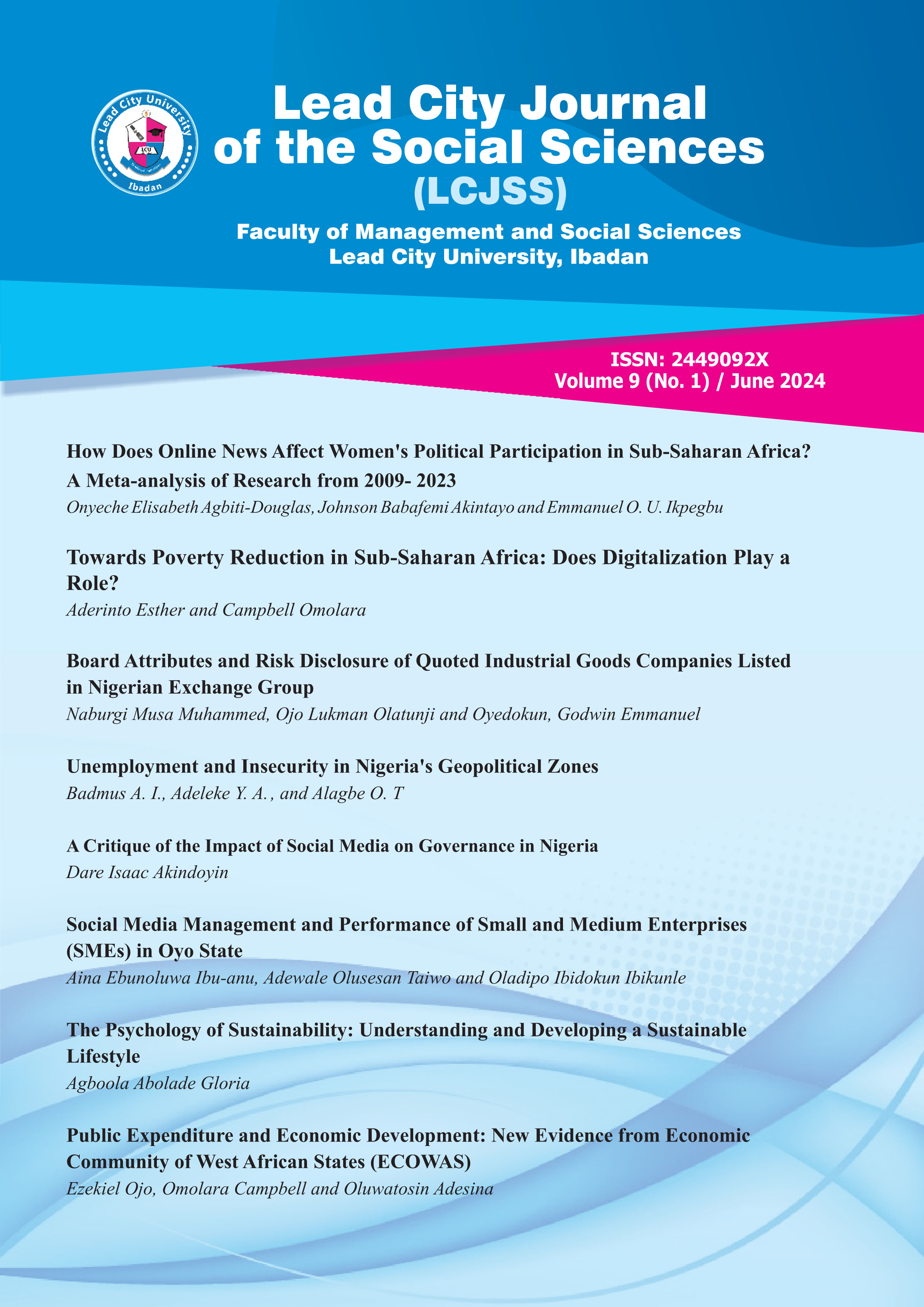Towards Poverty Reduction in Sub-Saharan Africa: Does Digitalization Play a Role?
Keywords:
Digitalization, Internet use, Mobile Subscription, Poverty, Sub-Saharan AfricaAbstract
There has been an increasing level of poverty in Sub-Saharan Africa (SSA) as the region accommodates
the largest number of poor people in the world. Digitalization has been identified as an important tool for
poverty alleviation, inclusive and sustainable economic growth through mechanisms such as education,
health, financial inclusion, among others. This study examines the direct and indirect effects of
digitalization on poverty reduction through education, health and financial access in SSAcountries. The
Pooled Ordinary Least Square Regression, Fixed Effect, Random Effect Regression as well as the
System Generalized method of Moments technique which controls for endogeneity of regressors and
does not eliminate cross-country variations was employed for 45 SSAcountries from 2000-2020. Data
is sourced from World Development Indicator (WDI). Results showed that for education, digital use in
terms of internet access has no significant effect on poverty in SSA. However, digital access measured
by mobile subscription has a significant effect on poverty. For the health channel, internet use and
mobile subscriptions increase poverty in SSA. The same findings relate to the financial access channel
of poverty reduction. The study, therefore, recommends that digital services should be provided at lower
cost and infrastructures that support the use of digital services be made readily available for SSA
countries.

